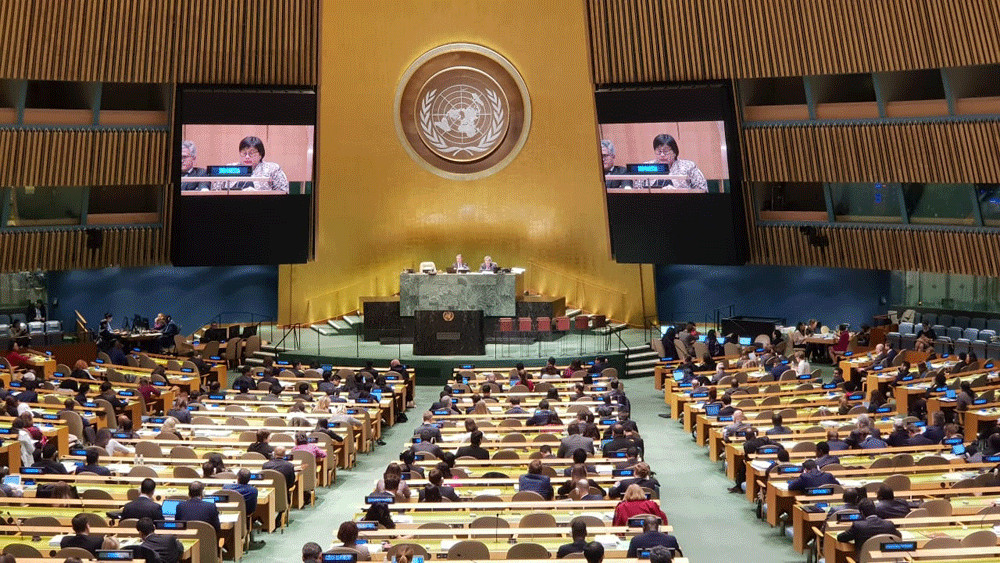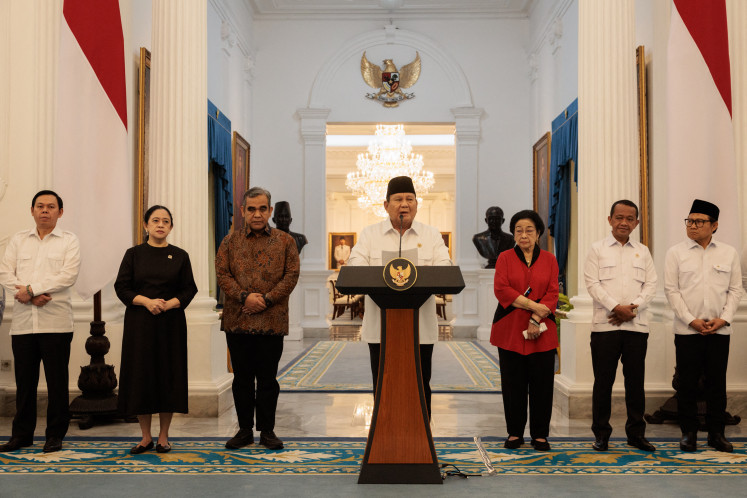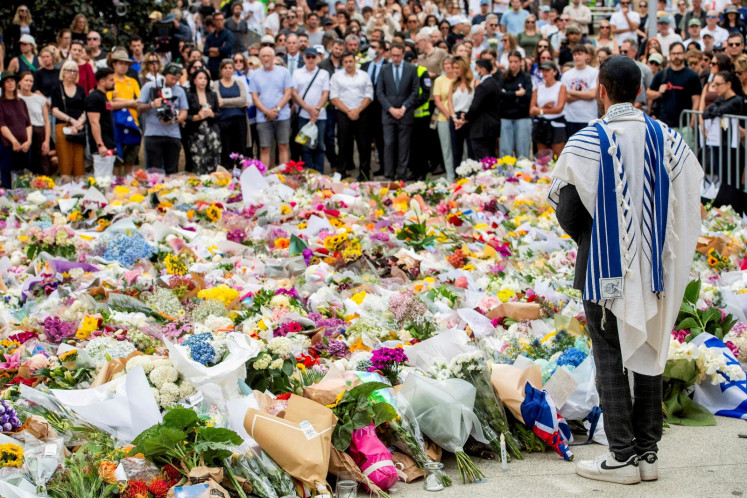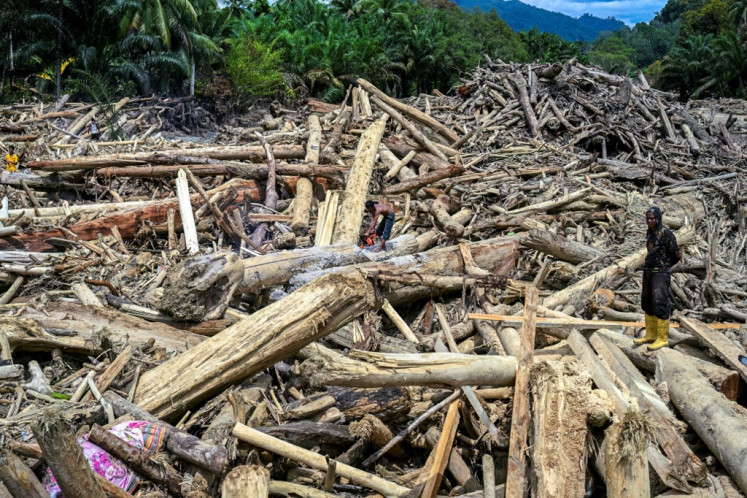Popular Reads
Top Results
Can't find what you're looking for?
View all search resultsPopular Reads
Top Results
Can't find what you're looking for?
View all search resultsA test of diplomatic maturity
The 75th session of the UNGA will offer to the G20 members the chance to demonstrate their diplomatic maturity by helping all UN members to reach a consensus for a genuine strategy for promoting and defending global health.
Change text size
Gift Premium Articles
to Anyone
I
n 2019, the United Nations General Assembly (UNGA), on behalf of 193 member states, decided that the 75th anniversary of the United Nations (UN) shall be commemorated in 2020 under the theme "The future we want, the United Nations we need: reaffirming our collective commitment to multilateralism".
The UNGA further decided to convene in New York, on 21 Sept., a high-level meeting to commemorate the 75th anniversary of the UN, with the participation of heads of state and government.
Earlier, in 2018, under an agenda item entitled "Global health and foreign policy", the UNGA requested the UN secretary-general, with the support of the World Health Organization (WHO), to provide a progress report on the matter in 2020.
In 2019, the UNGA decided to convene a high-level meeting on universal health coverage in 2023 in New York in order to identify gaps and solutions to accelerate progress towards the achievement of universal health coverage by 2030.It was also decided that the scope and modalities of this objective should be decided no later than the 75th session of the UNGA in 2020, taking into consideration the outcomes of other existing health-related processes.
It should be reminded that on Dec. 12, 2019 France, on behalf of the seven members of the Foreign Policy and Global Health Initiative – Brazil, France, Indonesia, Norway, Senegal, South Africa and Thailand – introduced the draft resolution entitled "Global health and foreign policy: an inclusive approach to strengthening health systems". Several paragraphs of the draft were approved by vote, while the resolution as a whole was adopted by consensus.
There was no reference to COVID-19 in all diplomatic deliberations about the above 2019 resolution, in spite of the fact that, as announced by BBC, on Dec. 1, 2019 the first onset of symptoms of this virus were observed, according to the Lancet medical journal.
The UNGA adopted two resolutions which are self- explanatory by their official titles: "Global solidarity to fight the coronavirus disease 2019 (COVID-19)" and "International cooperation to ensure global access to medicines, vaccines and medical equipment to face COVID-19".
In May 2020, on the proposal of 130 co-sponsors, including Thailand and Australia, as well as the European Union and its members, the WHO adopted a comprehensive resolution. In its first operative paragraph, the World Health Assembly "calls for, in the spirit of unity and solidarity, the intensification of cooperation and collaboration at all levels in order to contain and control the COVID-19 pandemic and mitigate its impact."
All the above mentioned reports and resolutions will be on the table of the 75th session of the UNGA. All of them recommend action-oriented measures to combat COVID-19 pandemic.
In the light of a challenging unprecedented reality, diplomats from all countries of the world will have the imperative duty to cooperate in order to give a collective practical response to the COVID-19 pandemic.
The 75th session of the UNGA will offer to the G20 members the chance to demonstrate their diplomatic maturity by helping all UN members to reach a consensus for a genuine strategy for promoting and defending global health.
While history teaches us that diplomatic maturity is a rare phenomenon at the global level, there is no doubt that, at present, worldwide solidarity in fighting COVID-19 will remain just a pure aspiration if diplomatic maturity does not become a mobilizing force able to overcome national egoisms in searching for universal solutions.
What diplomats participants in multilateral diplomacy under the auspices of the UN and WHO are expected to do is to give nations they represent a perspective of what is possible to accomplish, help them to win the battle with an invisible enemy.
On 19 February 2000 the United Nations Conference on Trade and Development (UNCTAD) adopted by consensus a document entitled "Bangkok Declaration: Global Dialogue and Dynamic Engagement" which contains relevant provisions fully applicable during COVID-19 times.
I was in the conference room when this first programmatic document was enthusiastically welcomed by all delegations. It says inter alia that "Solidarity and a strong sense of moral responsibility must be the guiding light of national and international policy. They are not only ethical imperatives, but also prerequisites for a prosperous, peaceful and secure world based on true partnership."
After 20 years, the full implementation of these objectives is still on the waiting list. The UN secretary-general recognized it in clear terms. In his remarks on Sept. 4 2020, at the G20 extraordinary meeting of the ministers of foreign affairs, he said: "we still lack effective international solidarity to respond to the economic and social impacts and the underlying fragilities exposed by the pandemic."
There are doubts that the declaration to be adopted by the high-level segment of the UNGA session will contain specific solutions. More results can be expected from the substantive deliberations in the UNGA plenary about global health and foreign policy.
In this regard, Indonesia has already officially announced that during its chairmanship of the Foreign Policy and Global Health Initiative in 2020, it has chosen "Affordable health care for all" as the central theme. Since promoting global health involves and requires concerted efforts on the part of multiple stakeholders, Indonesia would like to revitalize the Initiative to translate this specific cooperation into more concrete actions and results and affordable care for all.
It is in this organizational framework that a new comprehensive resolution could be adopted after serious consideration of the WHO report on the relevant agenda item. In this framework an authentic test of diplomatic maturity can take place. Yet, such a maturity cannot emerge spontaneously without a strong stimulus from national leaders who need themselves a true political maturity as decision-making actors.
In the opinion of some academics, leadership maturity may be the most overlooked factor in the global political arena. This is a paradox, because almost every meaningful decision of national leaders has multisystemic and sometimes local, national, regional and even global implications affecting diplomacy. In such circumstances, in order to be able to pass the test of diplomatic maturity it is necessary to take advantage of the most mature transformative leadership capacities at the national level.
Diplomats might be inspired by the wisdom of Edmund Burke (1727-1797) according to whom "Society…. becomes a partnership not only between those who are living, but between those who are dead and those who are (yet) to be born". This truth is valid for all human beings, including the actors of multilateral diplomacy who are expected to successfully pass in the near future the test of diplomatic maturity.
***
Visiting professor at Assumption University, Bangkok. The original article was published in On Line Opinion, Australia’s e-journal of social and political debate.










